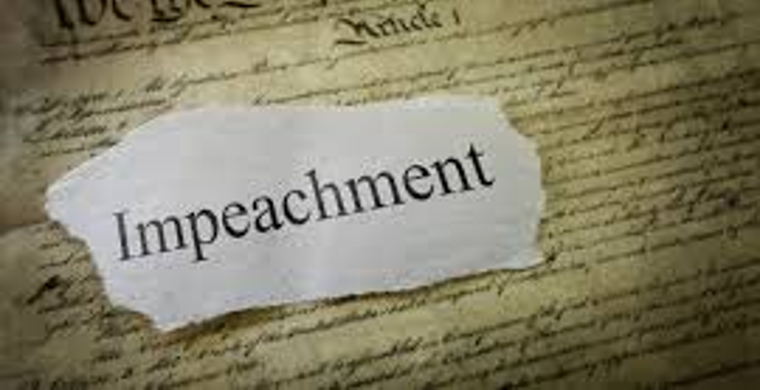IMPEACHMENT
By DUANE W.H. ARNOLD
Special to Virtueonline
www.virtueonline.org
February 7, 2021
While I personally support the Senate's consideration of the single article of impeachment passed by the House of Representatives, I am under no illusions as to it being a palliative when it comes to the divisions in the country at large. Whether the former president is convicted or acquitted, the divisions will remain, as will the sense of grievance that has become the identifying trait of both sides. Conviction or acquittal will, I think, merely add to that sense on one side or the other.
It seems to me that as we can no longer agree on facts, we also can no longer agree on a vision of what sort of society we wish to live in and bequeath to our children. One side sees only the civil unrest of the summer, while the other side sees only the insurrection of January in our nation's capitol. The lack of a common vision has not only blinded us to the common good, it has also blinded us as we look at one another. The truth of Scripture that, "without a vision the people perish" has taken on a prophetic tone.
Likewise, the divisions that have been building in the Christian community will also remain and, I fear, will deepen. I began my faith journey as an evangelical. For decades I was always willing to work beside evangelicals, even as I took another road as an Anglican. Today as I look at the majority of American evangelicals, I tend to regard them as separated brethren.
As their theological positions have become intertwined with nationalist politics, there are fewer and fewer points of contact, much less opportunities for anything resembling Christian fellowship. It often feels like hearing of the death of an old friend you have not seen for years. Even though you might have been distant in time or geography, the final severing of the relationship still causes grief.
Meanwhile, we continue to abandon and distrust institutions, whether they be governmental, educational or ecclesiastical. In many cases the distrust is warranted, in other cases, perhaps not. Nevertheless, conspiracy theories run rampant informing all who will listen that they are to trust no one outside of their own circle or tribe. This distrust, however, is not confined to institutions or the media. In the end, it causes us to distrust our neighbors, or those we work with, or even our families, or, indeed, anyone who disagrees with what we have come to believe.
Some years ago, a book was written on the Middle East entitled, 'Tribes With Flags'. Its main argument was that we had a basic misunderstanding concerning the countries that made up the region. We in the West wanted to view them as nation-states, similar to our own. The author, however, pointed out that most were artificial creations arising out of the end of the First World War and were made up of clans and tribes that did not function as nation-states. I think we are rapidly approaching something similar in our own nation. We are different tribes with different flags and although the flags are politics, or the news sources we listen to, or the conspiracies we choose to believe, the end result is the same.
In such an environment it seems to me that the Church must return to its ancient identity, one that is distinct from the various clans and tribes that surround us. Our call is not to identify with a particular clan or tribe, but rather to call people into a fellowship that stands outside the particular clans and tribes. "Here there is no Gentile or Jew, circumcised or uncircumcised, barbarian, Scythian, slave or free, but Christ is all, and is in all." Moreover, in this fellowship that stands outside of the clans and tribes, we are given how we are to conduct ourselves with one another. "Therefore, as God's chosen people, holy and dearly loved, clothe yourselves with compassion, kindness, humility, gentleness and patience. Bear with each other and forgive one another if any of you has a grievance against someone. Forgive as the Lord forgave you. And over all these virtues put on love, which binds them all together in perfect unity."
In the end, our hope is not in the transforming of society or the reformation of national political agendas according to the imposition of our particular religious values. I would suggest that the task at hand is really much more basic. I would suggest that it has to do with simply being the Church.
As I've often said, in the City of Man I will pray for leaders of good character and I will pray that justice will be done. In the end, however, I will place my hope and my labor in that small group of exiles who make up the City of God.
Duane W.H. Arnold, PhD
The Project














